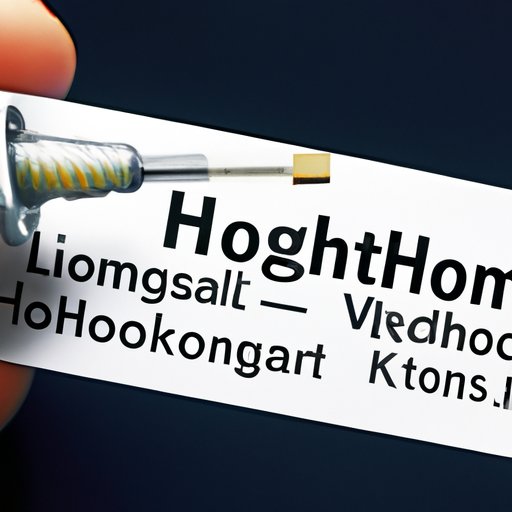Introduction
Lymphomas are cancers that affect the lymph system, which is an essential part of the immune system in the human body. The two main types of lymphoma are Hodgkin’s and Non-Hodgkin’s Lymphoma (NHL). These two cancers have many similarities, but there are differences in diagnosis, treatment, and prognosis. Understanding these differences is vital for people diagnosed with lymphoma and their loved ones so they can make informed choices about their care. This article serves to explore Hodgkin’s and Non-Hodgkin’s Lymphoma and determine the differences between them.
Comparative Analysis
The main differences between Hodgkin’s and NHL are the cancerous cells’ type and how they look under the microscope. Hodgkin’s lymphoma has a type of cell called Reed-Sternberg cells, which are not present in NHL.
Some of the shared symptoms of the two disorders are fever, weight loss, and night sweats. However, Hodgkin’s Lymphoma patients tend to present a more localized painless lymph node swelling in their neck, while NHL patients most likely show multiple lymph nodes located on the neck, groin, armpit, or chest area.
The staging of Hodgkin’s lymphoma is much simpler than NHL, and the treatment options have been more effective, leading to a higher cure rate. On the other hand, NHL has more subtypes, a more complicated staging system, and treatment efficacy and varies depending on the subtype of the patient.
Personal Experiences
Both lymphomas can cause great emotional distress. Treatment options are aggressive, and the recovery process is emotionally and physically challenging. Patients, family members, and caregivers experience depression, anxiety, fear, and stress. Survivors of Hodgkin’s lymphoma and NHL also report that their cancer diagnosis affects their work, personal life, and family relationships. However, many survivors persevere in their journey, and some even form support groups to share their experiences with others.
Expert Opinion
Medical professionals emphasize early detection as a means to improve the odds of survival. Oncologists and researchers have been able to devise new and improved treatments for both Hodgkin’s and NHL, leading to better quality of life for patients and higher cure rates. New research initiatives and clinical trials are continuously improving treatment options and therapeutic response rates.
Symptoms, Diagnosis, & Treatment
Both Hodgkin’s lymphoma and NHL are treated with a combination of chemotherapy and radiation therapy. However, precision medicine approaches that target the malignant cells more specifically than radiation and chemotherapy can sometimes be used. A bone marrow transplant can also be recommended for some patients who have undergone chemotherapy treatment.
Early detection of the cancer depends on regular check-ups and routine blood tests. Lymph node biopsies, image scans, and PET scans are also used to diagnose both cancers.
Prevention and Recovery
There is no known way to prevent Hodgkin’s or NHL as they can affect anyone at any age. Maintaining good health habits like a healthy diet, regular exercise, and avoiding smoking can help to lower the risk of developing lymphoma.
Recovery processes vary according to each patient’s condition and the stage of lymphoma. However, adopting a healthy lifestyle can significantly improve the odds of survival and help in recovery.
Conclusion
Hodgkin’s and Non-Hodgkin’s Lymphomas are challenging diseases that affect many people worldwide. Both Hodgkin’s lymphoma and NHL have many similarities and differences in diagnosis, treatment and recovery processes. Thanks to advancements in medical research and technology, both Hodgkin’s and NHL can now be treated and managed better than ever before. Early detection, decisive treatment under the care of medical professionals, healthy lifestyle choices, and supportive environments are key factors in experiencing positive outcomes during recovery from either cancer.
Additional Resources
- American Cancer Society- Lymphoma: https://www.lymphoma.org/
- Lymphoma Research Foundation: https://www.lls.org/
- The Leukemia & Lymphoma Society: https://www.lls.
